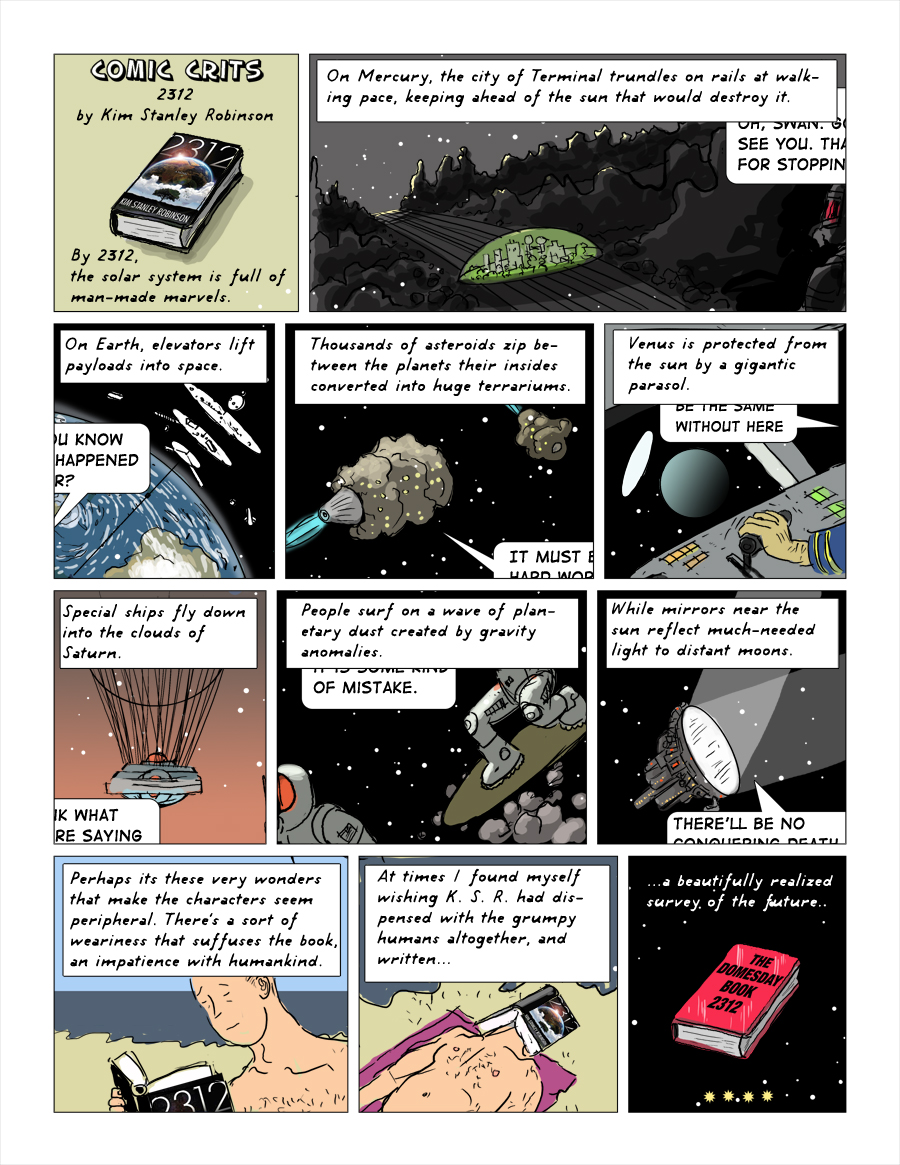Monday, February 17, 2020
2312 by Kim Stanley Robinson
2312 by Kim Stanley Robinson has been on my radar for a while but after hearing his interview on Chapo Traphouse I ran right out and bought it. The way KSR talks about the imperative of a post-scarcity future seemed like it would translate well into science fiction (which I am woefully unfamiliar with). And it really did!
It was a lucky break reading 2312 right after reading Martin Hagglund's This Life, which is all about how the ephemeral nature of life is exactly what gives it meaning. 2312, meanwhile, features a whole cast of characters who frankly don't seem to give a rip about life even while they torture themselves searching for its meaning.
The year is...well, you guessed it... the earth is in dysfunctional, post-climate change ruin (though people still live there) and space is colonized. The contrasts between earth and space are telling; Earth is miserable, bureaucratic, and life there is brutal and short while space seems to be filled with drifting artist types who spend their time building little terrariums on astroids for...artistic expression? Space is post-scarcity, Earth still has war for resources. Space is full of life, Earth isn't.
Two elements make this book for me; first, is the world-building. Robinson introduces his readers to his imagined future in excerpts that read like exercises in trying to put creative flair on technical writing. In style, it makes me think about the chapters in Moby Dick like "Of the Monsterous Pictures of Whales", "Cetology", or "Chowder"; exploratory sections that allow the reader to discover the world through fact and object, rather than through the lens of a character or a plot point (think of the way Rowling builds the wizarding world through Harry's lone interaction with it). This features some of the most breathtaking writing in the book. Heavy description laced with poetry, like Walt Whitman writing your biology textbook.
The second thing was the journey that characters like Swan and Waharm embark on. Not as far as the physical locations they go, but watching these three "spacers" develop an appreciation for life is endearing as hell. In space, your life span is longer, almost infinite, your options are limitless, and it seems hard to die (though not impossible). Even in the aftermath of near-death experiences, the spacers struggle to appreciate the value it should impart on their life: "Our stories go on awhile, some genes and words persist; then we go away. It was a hard thing to remember. And as the lock door closed and they were back inside, [Swan] once again forgot it". So when (**mild spoiler alert here**) in a beautifully written scene, Swan and Waharm repopulate the earth with all its long-extinct animal life because a shared life is a beautiful entity, I was literally tearing up.
So as the Trump administration continues to roll back environmental regulations and entire continents burn, I enjoy reading about a future where life is finally given the value it deserves.
From ComicCrit:http://comiccrits.com/2012/08/2312-by-kim-stanley-robinson/
Subscribe to:
Comments (Atom)

